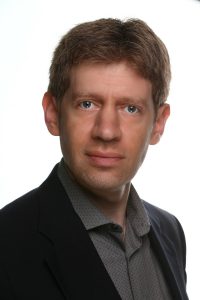
Evolution, Intelligence, and Open-Endedness
Kenneth Stanley, OpenAI (San Francisco, USA)
2 December 2021 – 17:00 GMT
Humans are a product of natural evolution, an open-ended process that has propagated novel and astonishing living inventions for over a billion years. Furthermore, our intelligence is itself open-ended, yielding thousands of years of divergent innovation in technology, science, art, music, and many other domains. In this way, we are both a product of open-endedness and a living realization of it. Therefore, to achieve deep insight into the nature of intelligence and prospects for groundbreaking progress in AI requires grappling with open-endedness and its continuing role in our ongoing story. This talk contemplates what we can draw from our relationship to open-endedness as we pursue such insight and how its power can be captured algorithmically to someday exhibit creativity as prodigious as that in nature.
Bio: Kenneth O. Stanley leads a research team at OpenAI on the challenge of open-endedness. He was previously Charles Millican Professor of Computer Science at the University of Central Florida and was also a co-founder of Geometric Intelligence Inc., which was acquired by Uber to create Uber AI Labs, where he was head of Core AI research. He received a B.S.E. from the University of Pennsylvania in 1997 and received a Ph.D. in 2004 from the University of Texas at Austin. He is an inventor of the Neuroevolution of Augmenting Topologies (NEAT), HyperNEAT, novelty search, and POET algorithms, as well as the CPPN representation, among many others. His main research contributions are in neuroevolution (i.e. evolving neural networks), generative and developmental systems, coevolution, machine learning for video games, interactive evolution, quality diversity, and open-endedness. He has won best paper awards for his work on NEAT, NERO, NEAT Drummer, FSMC, HyperNEAT, novelty search, Galactic Arms Race, POET, and MCC. His original 2002 paper on NEAT also received the 2017 ISAL Award for Outstanding Paper of the Decade 2002 – 2012 from the International Society for Artificial Life. He is a coauthor of the popular science book, “Why Greatness Cannot Be Planned: The Myth of the Objective” (published by Springer), and has spoken widely on its subject.